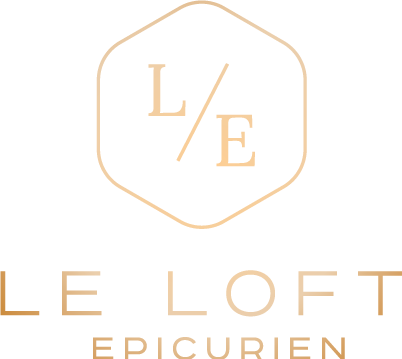Consumer behaviour during the coronavirus
Last time, we discussed the state of luxury in times of crisis, specifically with the coronavirus. In this argumentation, we want to explore the opposite. How do consumers adapt to the given situation? What can companies learn from this? How can companies adapt themselves and their business model?
Currently, our country has been in lockdown for a full week. In this short time, our behavior has changed rapidly. Working from home has become standard practice. We have limited our interactions with people and digitilized them if possible. Data providers have upgraded their packages with extra data and entertainment companies are heavily promoting movies or series. The companies we mention are showing their flexibility. Because of this, they can minimize the economic impact. It might even lead them to have an increase in sales.
To be able to adapt your strategy, you must know what it is you have to adapt. What are the changes in consumer behavior? Are their possibilities for companies? In this post, we give a general overview of the changing consumer behavior and answer these questions.
Crises in general
It is important to understand how people previously reacted when confronted with a crisis. The most logical implications of a crisis are the lower-priced products becoming more attractive. What is even more concerning, are users who are convinced such products are a suitable replacement for their previous brand(s) of choice. A McKinsey study in 2009 reported that 46% of people switching labels said the alternatives were better than expected. Consumers also start to think more practically. They ask themselves several questions that affect their decision on whether or not to buy a product.
- Is the product/service useful?
- Do I need it?
- Is it available somewhere else and at a lower price?
 Premium and luxury products have a hard time convincing clients to see the benefits they offer compared to non-luxury brands. Failing to do so, means that their worth in the eyes of consumers deteriorates further.
Premium and luxury products have a hard time convincing clients to see the benefits they offer compared to non-luxury brands. Failing to do so, means that their worth in the eyes of consumers deteriorates further.
This causes luxury and premium brands to fight a war on the pricing battlefield, which is almost impossible to win. We mentioned in our previous post that this doesn’t necessarily mean these brands will take a nose-dive, yet it is still something to be aware of.
Something that also impacts brands, is the fact that people save more. They also start to invest in items like jewelry instead of stocks. India is a great example of this. Because the prices of gold suddenly rose, they started to invest more into jewelry which is something that has always been important in their culture.
Health is the new wealth
Being healthy and staying so has recently become more important to people. Whereas being mindful of what you eat and mental health used to be received with eye-rolling, a (luxury) market has developed itself. The conclusion is that brands, in general, that take these trends to heart, will have an edge over competitors. This is also important during the coronavirus.
We are isolated from the people we normally connect with and loneliness is a real threat. Specifically singles have a harder time because there isn’t a partner in the house who they can show affection to. As a result, they are forced to turn to social media or call/facetime people.

All of these things tend to become repetitive. That’s why all companies should focus on connecting people. The goal is to either help people form new connections or to promote activities that stimulate mental health. In the first case, this can be done by reaching out to people via LinkedIn or Twitter and offer to meet one another (digitally). People like Erendiz Ates and Frédéric Paulussen have already done this.
In the case of mental health, companies that are in the sports-industry can share resources to build or maintain their physique and create dopamines that relieve stress and anxiety. On a related level, in times like these, empathy is important. Both businesses and consumers face similar challenges which is why solidarity is needed. Louis Vuitton e.g. shared this warm message with its audiences on WeChat and Weibo:
“Every paused journey will eventually restart. Louis Vuitton hopes you and your beloved ones stay safe and healthy.”
Alternatively, companies can contribute to society with their in-house resources. In the case of Filliers, a distiller of luxury gin, they create denatured ethyl alcohol which pharmacies can use to create hand sanitizers
Future spendings
 Given the coronavirus-situation, there might be possibilities for luxury brands to explore. The first thing to note is that your e-commerce should be on point. Luxury brands always had their doubts concerning their investments towards e-commerce. The current situation, however, leaves no doubt about how important this is. Up to recently, e-commerce ‘only’ attributed 12% of sales to luxury brands. Due to social isolation, that number can go up quickly. In China, for example, the number of online car sales increased. Yet when looking at the number of luxury car brands selling online, we are left with only Tesla.
Given the coronavirus-situation, there might be possibilities for luxury brands to explore. The first thing to note is that your e-commerce should be on point. Luxury brands always had their doubts concerning their investments towards e-commerce. The current situation, however, leaves no doubt about how important this is. Up to recently, e-commerce ‘only’ attributed 12% of sales to luxury brands. Due to social isolation, that number can go up quickly. In China, for example, the number of online car sales increased. Yet when looking at the number of luxury car brands selling online, we are left with only Tesla.
Another possibility is the fact that people have become more price-sensitive. This might feel contradictory yet the reasoning is simple. Since luxury brands can’t directly compete with non-luxury brands on pricing, the benefit for luxury brands lies in the future. Even in times like these, people will have to buy certain necessities. Most of them will first look at the prices.
Convincing consumers
Luxury brands, therefore, need to explain that paying a higher price short term leads to customers saving money. This is because their products are more durable and cost less long term. Admittedly, this is not easy to convince customers of, especially because it isn’t a universal argument. Using customer reviews and studies helps to prove the quality of your products, thus convincing people of your brand’s value.
A player that could potentially rebounce after the crisis, is inland tourism. There are two reasons for this. The first reason is that according to well-known virologist Marc Van Ranst, we do better not travel abroad during the summer. People normally travel to tropical resorts. They now need to find alternatives. The second reason is that the overall difference in travel spending in a boom and during a recession is relatively low. The same is true when comparing the recession to the recovery phase, which doesn't show large differences.



The luxury aviation market is a good example of this. The industry did well in February when people no longer wanted to travel publicly. Both regular and more thriving consumers grabbed this chance to still have the chance to go on holiday. We believe that inland tourism can become a blooming branch. If, for example, local tourism would partner up with local gastronomy, they could both benefit from the synergy both create. This combined with a possible larger disposable income indicates that there is a relatively good chance this industry could get back on its feet in a reasonable time.
If you found the info useful, leave a like, comment and/or share it with your network. We are always open to constructive feedback to help improve our content. This way we can offer our followers the most value.
Luxury in times of crisis
The coronavirus is hitting us hard. Several parts of Europe have gone into quarantine and stocks are dropping heavy. While watching the news and seeing people plunder supermarkets, we thought about what Sir Winston Churchill once said: “never waste a good crisis”. As this wisdom is very relevant today, we are using this crisis as an opportunity to see what we can do to make the best out of the given situation.
Most of us tend to have similar reactions when we hear about the coronavirus. Companies tighten their belts vastly around their financial wastes and immediately start cutting into the budget wherever possible. Stockbrokers start sweating uncontrollably thinking about all the phonecalls they are going to face when their investors start hearing about the possible consequences the coronavirus brings. Trust in the economy and the solving of this situation goes downhill in a matter of mere seconds. While those reactions are understandable, we suggest going about the situation differently.
Don’t only cut costs
 As mentioned above its a logical reaction that companies want to reduce costs in hopes of coming out of this situation as well as possible. Yet the opposite will happen. According to Harvard Business Review, companies that go heavy on budget-saving have a 21% chance of not passing the competition by when the tides start turning. That means the ones that invest during a recession are coming out on top, right? Not always. Even the ones that just invest more than their rivals have only 5% more probability to do better than the competition.
As mentioned above its a logical reaction that companies want to reduce costs in hopes of coming out of this situation as well as possible. Yet the opposite will happen. According to Harvard Business Review, companies that go heavy on budget-saving have a 21% chance of not passing the competition by when the tides start turning. That means the ones that invest during a recession are coming out on top, right? Not always. Even the ones that just invest more than their rivals have only 5% more probability to do better than the competition.
So what do you have to do? The key lies in finding a balance between saving and investing. This is not simple nor is there a solution applicable to every situation. But, generally speaking, it is advised to simultaneously cut operational costs while investing more in R&D, marketing, assets, and machinery. This way you can start to develop new markets. It doesn’t suffice to cut a percentage of your workforce if you don’t work on lowering costs in other areas as well. An example of this is when Office Depot laid off several workers but didn’t work on reducing their operational costs. The result was that their sales went down from 19% to 8%. Staples, on the other hand, mostly closed underperforming facilities and invested instead in an upgrade of their workforce and R&D. This enabled them to introduce new high-end products that doubled their sales numbers.
Luxury surviving
Though there are exceptions to this, the luxury market in some cases is resilient in times of crisis. In 2011, the market value of the industry was reported to grow up to € 173 billion which was 13% more than in 2009 when the crisis was at its peak.
Bain & Co attributed this to the fact that people switch from investing/saving their money into banks/stocks to buying luxury items and selling them when their value reaches a peak. In India, for example, the population invests in jewelry because of the sudden rise in prices of gold.
Another important thing to note is that people, in general, will sometimes continue to buy expensive luxury products. Between 2008 to 2009, Gucci had an increase in sales in both Europe and in the USA with 14.5%. In the same period, Louis Vuitton had an increase in sales in Europe while its sales remained stable overseas. Both brands did this while introducing even more expensive handbags on the market.
Explanation
 How is this possible? In the cases above the natural competitiveness between women contributes to them spending more on bags to intimidate their ‘competitors’ on a romantic level. Besides that, American women spend quite high numbers on their bags with prices easily exceeding $ 200. Another 10% of respondents even admits to spending over $ 400. This explains how some brands are still reasonably able to produce good numbers. Another reason is that in some cases, people who are planning on buying luxury goods are not held back by a bad economic climate. Generation Y is a good example of this because they place their views towards the brand above the functional, social, and financial values that are often factors when deciding to buy luxury items.
How is this possible? In the cases above the natural competitiveness between women contributes to them spending more on bags to intimidate their ‘competitors’ on a romantic level. Besides that, American women spend quite high numbers on their bags with prices easily exceeding $ 200. Another 10% of respondents even admits to spending over $ 400. This explains how some brands are still reasonably able to produce good numbers. Another reason is that in some cases, people who are planning on buying luxury goods are not held back by a bad economic climate. Generation Y is a good example of this because they place their views towards the brand above the functional, social, and financial values that are often factors when deciding to buy luxury items.
Of course, this is not to say luxury will always thrive in recessions. Exceptions happen such as in 2016 when wealthy people didn’t buy as many luxury goods. This was due to the lower income which was amongst other things a result of the top tax rate that came into play as of 2013.
Moving forward
 Going into the future with the coronavirus, the luxury market won't come out unharmed but it might do reasonably well. Vogue business e.g. claims that luxury brands aren’t as dependent on wholesalers as they used to be. This is thanks to the popularity of e-commerce despite only contributing 12% of sales.
Going into the future with the coronavirus, the luxury market won't come out unharmed but it might do reasonably well. Vogue business e.g. claims that luxury brands aren’t as dependent on wholesalers as they used to be. This is thanks to the popularity of e-commerce despite only contributing 12% of sales.
The upcoming luxury markets such, as China, will play a key role in how hard the industry will be hit. In 2018 the luxury market had a boost of 5% thanks to the growing popularity of luxury goods in China. Unfortunately, this trend won't repeat itself today because of the blow the Chinese luxury market took. This will have painful consequences for the rest of the industry with numbers predicting losses in sales between € 30 to 40 billion.
This crisis is an opportunity to strengthen the customer experience and general customer loyalty. A good way to do this is by implementing customer loyalty and or retention campaigns. Attracting new customers is hard and more expensive, meaning you better try to keep the clients you have and strengthen those relations. Luxury brands need to personalize their customer experiences further where possible. This simple detail can be decisive when customers are contemplating shopping with you or with one of your competitors. Finally, brands need to see if their Added Luxury Value is clear. Often brands can not easily communicate this and as a result, will be hit harder than other luxury competitors.
If you found the info useful, leave a like, comment and/or share it with your network. We are always open to constructive feedback to help improve our content. This way we can offer our followers the most value.


